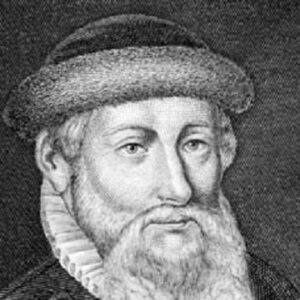Without Johannes Gutenberg, the world would not have had access to mass printed books, and it is no surprise that the German is recognized as one of the most significant contributors in the history of the globe. Gutenberg’s innovation of printing is without a doubt one of the most significant in history since it allowed people to share knowledge that had previously been restricted to a small group of individuals for hundreds of years. Johannes Gutenberg was a unique visionary, but aside from inventing moveable type printing, he also lay the groundwork for printing the Bible, which was undoubtedly one of his greatest achievements. However, it is also important to remember that Johannes Gutenberg was a man of many talents who began his career as a blacksmith before progressing to being a goldsmith. He was the one who invented the type of ink that would make printing possible and ensure that the books would be readable for a long time, in addition to creating modern printing technology at the time. He created a printing technology that was significantly more advanced than the ancient Chinese had perfected. Continue reading to learn more about this pioneering inventor’s life and career.
Childhood and Adolescence
Johannes Gutenberg was born in the German city of Mainz in the year 1398 to Friele Gensfleisch zur Laden and Elyse Wyrich. Johannes’ father was a prosperous textile merchant, and he was the family’s youngest son.
There is little information regarding Johannes Gutenberg’s early life, but historians assume that he attended the ‘University of Erfurt’ around 1418.
Due to a violent power struggle between the city’s officials and guilds, Johannes Gutenberg’s family was forced to flee Mainz in 1428. His family had to leave the city and travel to Strasbourg because they were of the upper class.
He began his career in the jewelry sector in Strasbourg, specializing in gem cutting.
Johannes continued to work on his secret, which is thought to be printing technology, while still a goldsmith and was able to secure some funding from three individuals in Strasbourg, and it is widely considered that his decision to sign a contract with them in 1438 was a masterstroke.
The Career of Gutenberg
Gutenberg stated that the idea for moveable type printing came to him in a flash of light, which he referred to as a ‘ray of light.’ Gutenberg originally revealed the then-groundbreaking concept of printing to his partners in 1440, while he was in Strasbourg.
Between 1444 and 1448, a large section of his life is missing from the record. His brother-in-law gave him a loan to establish his own business, and while it is said to have been for a printing press, it could have also been for his goldsmith business.
Gutenberg successfully opened his printing machine in 1450, and it is reported that the very first item printed to test the press’s effectiveness was a poem in German, the particular name of which is unclear. Gutenberg was later able to secure a large loan for his workshop from moneylender Johann Fust.
In 1452, Gutenberg established his workshop, and it was there that he first chose to print the Bible, which he believed would be a successful endeavor. He did, however, have a separate press where he published commonplace publications such as Latin textbooks and Church indulgences.
Gutenberg produced his first copy of the Bible in 1455, which became known as Gutenberg’s Bible. He had originally printed 180 copies, and it didn’t appear to be a profitable endeavor.
Johann Fust, Gutenberg’s main financial sponsor, sued him for misappropriation of funds in 1456, and Gutenberg lost the case. Due to the Bible project, he had run out of money, and the printing workshop was given over to Johann Fust.
Gutenberg’s Major Projects
The invention of moveable type printing, which he devised and which established the basis for further printing technologies and styles until the twentieth century, remains Johannes Gutenberg’s most important contribution.
Achievements & Awards
Although Johann Fust, who took over Gutenberg’s printing press, completely disregarded Gutenberg’s discovery of moveable printing technology, he was awarded the title Hofmann, which literally means Gentleman of the Court, in 1465.
Personal History and Legacy
Although nothing is known about his personal life, there is evidence that he took a loan from his brother-in-law, leading to suspicion that he may have married. It is unknown whether he had any children.
On 3 February 1468, Johannes Gutenberg died at the age of 70. His death was for unclear reasons, and he was buried in a chapel in his hometown of Mainz.
Estimated Net worth
Johannes is one of the wealthiest inventors and one of the most well-known inventors. Johannes Gutenberg’s net worth is estimated to be $8 million.


